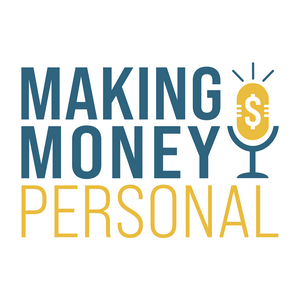Today, overconsumption has grown pervasively in many of our lives. Or at least the temptation to overconsume. In this time of influencers, shopping hauls, and restocking videos, it's important to remember the effects that overconsumption can have on not only our lives but also the lives of others and, ultimately, the environment.
If you're hoping to combat overconsumption habits in your own life, there are ways to recognize and bar yourself against the habit, leading to a more fulfilling and mindful lifestyle.
Links:
Check out TCU University for financial education tips and resources!
Follow us on Facebook, Instagram and Twitter!
Learn more about Triangle Credit Union
Transcript:
Welcome to Money Tip Tuesday from the Making Money Personal podcast.
What is overconsumption? Overconsumption happens when we buy more stuff than we need. If you're perpetually on the internet like I am, you've probably seen restock videos, unboxing videos, shopping hauls, and influencer must-haves. These are items that influencers, who have a large following on social media, often promote as essential or trendy, leading their followers to believe they need these items too. More often than not, these videos showcase extraordinary purchases to show off their collections or entice you to buy the item presented. They're almost always aesthetically pleasing and show off in carefully crafted ways to get viewers to picture themselves owning or using the item.
But this is all part of the vast overconsumption environment we're in.
You may know what I'm talking about, as some signs in your home may point to this phenomenon. An overflowing closet, overstuffed drawers, and piles of things littering the hallway are all examples of what can happen when we overbuy. Recognizing these signs is the first step towards a more mindful and sustainable lifestyle.
Some common signs of overconsumption are buying clothes you'll only wear once, wasting food because of overbuying, upgrading your phone too often, and using too much energy at home.
We're fortunate to live in a time when almost anything we want can be delivered to our doors within a couple of days. The convenience of online selling and delivery apps has given us many wonderful opportunities to live and build the lives we want, but they also give us more reasons to shop and spend.
Not to mention the barrage of advertisements on social apps, streaming services, influencer videos, and targeted emails constantly reminding us of that nifty new gadget, skincare product, or clothing item. Plus, payment options like 'Buy Now, Pay Later' (BNPL) have entered the arena, allowing even more people to purchase items they would otherwise have had to wait for or passed on altogether.
To better identify the effect of overconsumption on society, it's essential to recognize its dangers.
From an Individual perspective, overconsumption can negatively affect our finances due to increased spending on things that we either never use or use once and then discard. Not to mention, if you're one to stockpile, a buildup of items can lead to a cluttered living space, inhibiting our ability to feel at peace or relaxed in our homes.
The dangers of overconsumption affect not only you but also your environment. Overbuying can lead to greater waste and an increase in items sent to landfills. More trash can lead to more pollution, which affects our environment.
What's the best method of avoiding overconsumption? First, be honest with yourself and recognize if you're doing it. Then, pay attention to the signs in and around your home and your spending transactions to check your consumption habits.
It's also good to start being more mindful about why you're buying something in the first place.
You can also try an underconsumption challenge. You may have seen people online touting their own underconsumption journeys also known as “underconsumption core”. These are lifestyle changes where they focus on not buying more things than they’ll use or need. Some examples you may see range from people using all existing skincare products before buying anything new, learning how to mend their own clothes instead of tossing used and buying new ones, or trying to make dinner from whatever is available in the fridge rather than running to the store for more ingredients or ordering out. For instance, you could try a 'no-buy month' where you commit to not purchasing any non-essential items for a month. Or, you could challenge yourself to use up all the food in your pantry before buying more groceries. Some of these ideas work as lifestyle habits; others might be fun to try as challenges. Reflect on your situation and determine whether you would benefit from some underconsumption habits to live a more sustainable life.
If there are any other tips or topics you would like us to cover, let us know at
[email protected]. Like and follow our Making Money Personal FB and IG page and look for our sponsor, Triangle Credit Union on social media to share your thoughts.
Thanks for listening to today’s Money Tip Tuesday and check out our other tips and episodes on the Making Money Personal podcast.
Have a great day!
